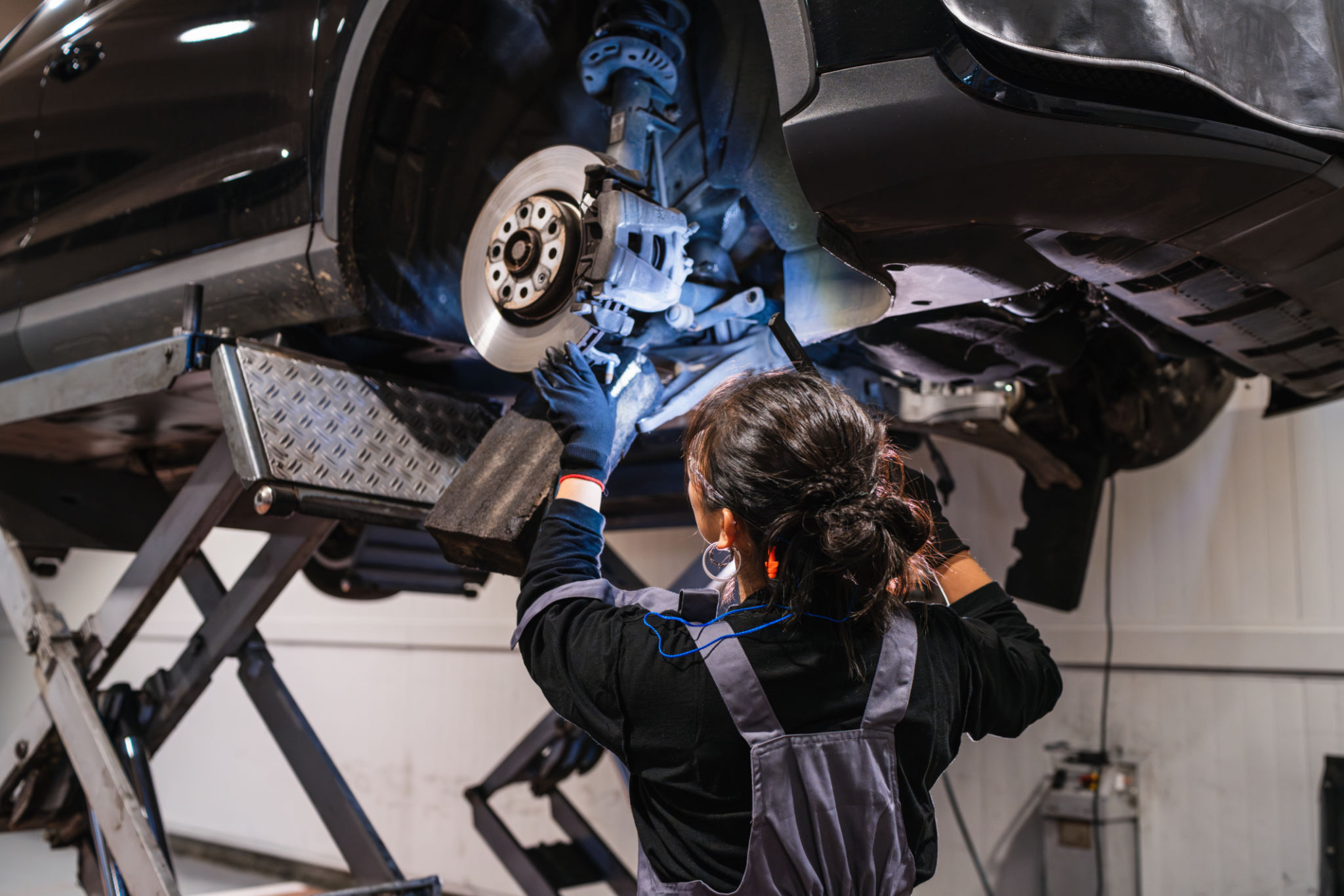Preparing Your Vehicle for Seasonal Changes: Brake Maintenance Tips
Understanding the Importance of Brake Maintenance
As the seasons change, so do road conditions, and your vehicle's brakes are a critical component in ensuring safety. Proper brake maintenance is essential to handle the variety of weather challenges each season presents. From icy roads in winter to slick surfaces during spring showers, reliable brakes can make all the difference in preventing accidents.

Signs Your Brakes Need Attention
One of the first steps in brake maintenance is recognizing the signs that your brakes may need attention. Common indicators include squeaking or grinding noises, a vibrating brake pedal, or a longer stopping distance. It's crucial to address these issues promptly to avoid more severe damage or failure.
If you notice any of these signs, it's advisable to consult with a professional mechanic as soon as possible. Regular inspections can help catch problems early, saving you time and money in the long run.
Regular Brake Inspections
Regular brake inspections are a proactive measure to ensure your vehicle's braking system is functioning correctly. During an inspection, mechanics will typically check the brake pads, rotors, and fluid levels. It's recommended to have your brakes inspected at least twice a year or whenever you have your tires rotated.

Replacing Brake Pads and Rotors
Brake pads and rotors endure significant wear and tear over time. Replacing them as needed is vital for maintaining braking efficiency. Brake pads should generally be replaced every 20,000 to 50,000 miles, depending on your driving habits and conditions. Rotors may need replacement every 50,000 to 70,000 miles.
The cost of replacing brake pads and rotors can vary but investing in high-quality parts can enhance performance and extend their lifespan. Always consult your vehicle's manual or a professional for specific recommendations.
Brake Fluid Maintenance
Brake fluid plays a crucial role in the brake system by transferring force from the pedal to the brakes themselves. Over time, brake fluid can absorb moisture, reducing its effectiveness. Regularly checking and flushing your brake fluid ensures optimal performance.

It's generally recommended to replace brake fluid every two years or as specified in your vehicle's maintenance guide. Using the correct type of brake fluid is also essential, as different vehicles require different specifications.
Preparing for Extreme Weather Conditions
Each season brings unique weather challenges that can affect your vehicle's braking performance. In winter, for example, cold temperatures can cause brake components to contract, affecting their efficiency. In contrast, summer heat can lead to brake fade if fluids are not adequately maintained.
Being prepared for these conditions by ensuring your brakes are in top condition is crucial for safety on the road.
Conclusion: Prioritize Brake Safety
Preparing your vehicle for seasonal changes involves more than just changing tires or checking fluids; it requires a focus on brake maintenance as well. By staying vigilant about your braking system's health, you can ensure a safer driving experience regardless of the weather conditions.
Remember, regular maintenance and timely repairs are investments in your safety and the longevity of your vehicle. By following these tips and consulting with professionals when necessary, you can confidently navigate seasonal changes with peace of mind.